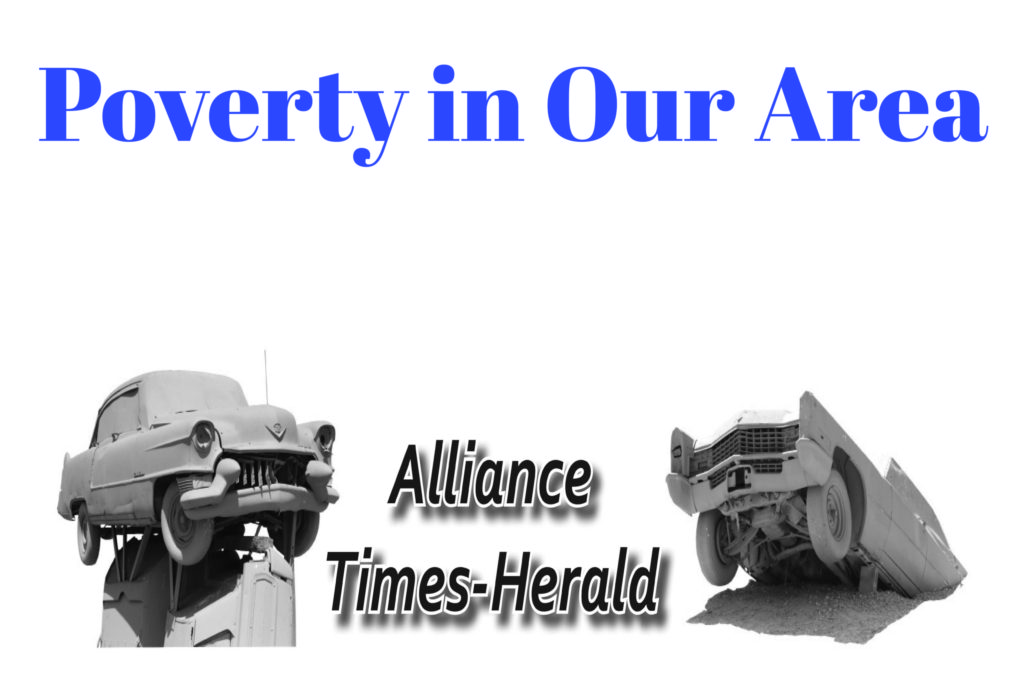By Anonymous
Task Force on Poverty
Recently someone shared her childhood stories of living in poverty, and this is a continuation of her story. Poverty for children does not simply mean getting by with less. It means facing attitudes and experiences that others can’t comprehend. It means learning early on that you are worth less, less than everyone around you. And just as children think that when things go wrong it’s their fault, poor children often think their poverty is their fault.
“Last time I told you about my seventh birthday party – the one my twelve-year-old sister made sure I had.
“Fast forward to the next month. My dad is still MIA, and Mom moved us to a bigger community seven hours away; no explanation, no idea where my dad was or why we couldn’t stay where we were. It was just time to go. The eight of us moved from a five bedroom two story home to a two bedroom, one level house. Most days mom would sleep while we were in school and be gone to work all night. Again she was leaving my twelve-year-old sister to take care of the younger four of us while my twin eleven-year-old brothers ran around getting into whatever they wanted.
“We couldn’t afford anything, but thankfully we could eat at school. We tried to stash what we could for dinner and weekends. We lived on mac & cheese and always hoped for something different for the next meal.
“The older boys doing what they wanted meant trouble! Some days we were all running home for dear life because of their antics. One day we were met by a gang who were swinging large tree limbs at us. Luckily this time my brothers were able to fight back enough to get us out of there with minor injuries, but not so luckily they knew were we lived. Soon their mother was at our front door with weapons, trying to pull my mom out of the house in her bathrobe. One of the scariest things in the world to watch is a scene like this and trying to hide because you don’t know what is going to happen and who will get hurt. The cops were called and restraining orders put in place on both sides.
“Did this stop them from harassing us? Nope. Who cares – the police have better things to deal with. It is true that when the older boys got in bigger trouble, then the police showed up to deal with them.
“These were my thoughts as a seven-year-old, because these were the things my young ears heard: We were nothing more than a drain on the economy, just another family in poverty causing trouble. Where’s the dad? Why don’t the parents get a job that can take care of all those kids? Why did they have so many kids in the first place? They are just a drain on the rest of us. Like we kids had any control.
“Little did they know or care that the reason the older ones were getting in trouble was that they did not have parental eyes on them, there was still no sign of a father figure, and mom was working a job at nights that did not pay enough for this large family. The fathers to the kids would pop in and out of our lives with promises that things would be better and get our hopes up, but ultimately each promise would fall through, leaving us kids with more disappointment than the time before.”
Over the next few months, the Task Force on Poverty will be presenting more stories about poverty and information about agencies in Box Butte County which deal with problems faced by those who live in poverty. Provided we’ve moved past our COVID-19 issues, Bridges Out of Poverty will be holding a day-long conference on June 11, 2020, at the Alliance High School Commons. Registration is online at panhandlepartnership.com. This organization has a global reputation for helping understand the lives of those who live in poverty. Watch for more information as we develop strategies to deal with this all-too-common problem facing so many in our area.

